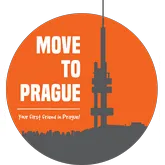Written by Eva Howlings
for Expats.cz
Giving birth inspires dread in most women who are doing it for the first time. It´s no less daunting for those who have been there and done that. There is good reason to be worried, because no matter how many children a woman has had, there is always some risk involved. Parents hope for an uncomplicated delivery, and if it can be emotionally satisfying as well, then that´s even better. But there are so many things we cannot know until after the fact, and these unknown variables fill us with fear.
Add to all this general worry the prospect of having a baby in a foreign country, where we have no idea what to expect, and it´s pretty terrifying. Medical practices differ from home and the language barrier has never been a bigger issue. Doctors here even seem to treat their patients differently. But don´t give up hope – there´s an institution in Prague that has made it their job help. Aperio´s mission is to inform the population about all kinds of family issues – including birth – and now they´re reaching out to the expat community as well.
Aperio has been surveying services available in maternity wards in the Czech Republic and sharing their findings with the public since they were founded in 2002. They determine the needs of expectant parents and tailor their services accordingly. Their assessment is that in the Czech health care system, everybody gets equal care regardless of their actual needs. So at least we know we won´t get worse treatment just because we are foreign. But what does this mean, in terms of what we are used to in our own home lands? I put some questions to Olga Gajicvova of Aperio.
***
Women who become pregnant while in Prague often wonder if they´d be better off going back to their homeland to deliver their babies. How do you think the Czech maternity care compares to that of other European countries?
From purely medical point of view, majority of Czech hospitals are above average in Europe in maternity care. Therefore, if an expectant mother requires a “medical” birth, with interference of the medical staff in the hospital, then she is fine. However, if she requires company of her own doula or midwife, wants to avoid medical interventions, wants to give birth into the water, or VBAC, then she has to choose carefully among Czech hospitals.
Among serious issues, however, are substandard quality communication between a client and medical professionals.
Is it safe to say that while the facilities in most maternity wards are not the most advanced and new, the level of medical care is actually excellent?
The level of care is excellent – and it is appreciated by mothers who have complicated births, or deliver premature or ill babies. However, mothers who have uncomplicated birth and do not want intervention of medical staff, are often forced to accept procedures that they view as unnecessary or are not recommended by WHO.
I have the usual VZP coverage that most expat ladies have, and it has covered all prenatal visits (once a month and then once a week in the final month) several rounds of ultrasound including the latest 4D scans, glucose intolerance test, the 3 test (for chromosomal risk) as well as neonatal care – such as all the recommended vaccinations.
Is this the standard that can be expected at most hospitals?
Yes.
What kinds of vaccinations are provided for free, which ones are optional if you pay for them, and do you know of any that are available in this country (For example – vitamin K is often given as an injection but here is administered orally.)
Generally, there is a strong inclination to vaccinate all the children, in spite of the fact that some parents disagree. Parents object that the vaccinations are being administered too early, all children born in Czech hospitals are being vaccinated second day after the birth against TBC.
Can you list the various hospitals in the Prague area that have birthing wards, and maybe say something about each? (The benefits/disadvantages/reputation of each.) For example, I´ve heard that Motol is the best option for those who don´t speak Czech and need to find doctors who can speak English, and that Krc, while being a bit run-down, actually has the most caring staff.
Generally, all Prague hospitals are overbooked right now, and therefore most require a registration from 20 wk of pregnancy. This does not make the hospitals competitive, and they stick to traditional routines.
It is impossible to divide the hospitals into categories like benefits-disadvantages. The parents should check themselves here.
The maternity wards in Prague are Podoli, Vinohrady, Krc, Motol, Bulovka, Apolinar.
Whichever hospital will be chosen by parents, it is recommended to visit it beforehand, and to inquire about these details.
What are some things that a woman giving birth would be expected to bring the hospital, things that are not provided by the ward? (For example – I think in Krc my friend mentioned that toilet paper was not provided, she had to bring her own.)
As the services of each hospital differ, it is recommended to inquire beforehand and to bring toiletries including toilet paper, sanitary pads, diapers etc. just to be on the safe side.
What is the current situation with midwives – I heard they registered a complaint with the EU because they are not allowed to work autonomously, as they are in most other European countries. It seems much less common to have home births here, or to delver in a “birthing center”. Alternative birthing styles also seem rare here: water births, active birthing (where women walk, squat, do yoga, etc. to ease pain but also play the primary role during delivery.)
No progress yet. There is a tendency to limit autonomous performance of their work as defined in EU countries.
Two years ago, there were several places that supported women who prefer to use alternative birthing styles. Nowadays, these places are being closed or alternative styles are being limited.
What about elective C-sections. Can a woman choose to have one if she prefers? Would she have to pay anything extra in that case?
Officially, the choice is not available. However, in reality it is possible.
One of the things that I think is very god in the Czech maternity system is the emphasis on breastfeeding. Nurses come and demonstrate the correct positions and supervise that it is going well, and that baby is gaining. Is this the norm, at all the facilities, that you know of?
The emphasis on breastfeeding is significant. In Czech hospital, 91% of hospitals are baby friendly which means that they support breastfeeding.
I know there´s a lot of interest in hiring English midwives, but they then still have to act a supporting help to the obstetrician on duty. Can you explain a little about the benefits of hiring your own midwife? Do you get a chance to meet with her before hand, to discuss birth plans and so on? More and more people are also hiring doulas, to help the mother, during as well as after the delivery. Is this a common practice? What would you suggest to a foreign family who would like to find a doula?
Whoever can hire a midwife (regardless her nationality), that will accompany the mother to the hospital. The midwife is not a member of the hospital staff. She cannot act in her professional capacity as a midwife, can only perform duties as a doula, this means accompanying person. However, it is definitely good to have a midwife or a doula since pregnancy till post partum period.
I don´t remember any pain medication being offered to me the days after birth – despite the pain of walking, sitting down and those first painful attempts to breastfeed. Is it a cost issue, or to do with risk to the baby? What if you ask for prescription pain killers (fx: codeine) and offer to pay for it. Would they give it to you?
Pain killers are generally not being administered, only by request and after consultation with doctors.
Rooming-in is also seen as more progressive than having all the babies together in the nursery, and brought to the mother a few times a day. Do all hospitals allow rooming in? Do all the hospitals train first time moms in how to change a nappy, give a bath, and carry the new baby?
Nowadays, rooming in is a standard feature. Yes, the hospitals provide basic training to first time mothers.
What is the average length of stay after giving birth? Do all hospitals have the option for “family rooms” or above-standard rooms, for a price, if the father wishes to stay overnight?
After non complicated birth, mothers stay in for 3-4 days. After C section, 5-6 days are a norm. Most hospitals offer above standard rooms, for fee round 1000 CZK.
Can you go over some of the administrative tasks that new parents will face at the hospital before taking their baby home? For example, I know they must select a pediatrician. What is the procedure for getting a birth certificate? How long does it take? Is it free? Are all babies born here technically Czech citizens?
It is not mandatory, however it is recommended to have a pediatrician selected beforehand. Upon return home, parents contact the pediatrician and he or the nurse come over to check the baby.
As for the name, the form is being signed in the maternity ward. Also, there is a set of documents that a mother is required to bring to the hospital while giving birth, in order to be issued birth certificate. For details, see the brochure “NEBOJUJTE S URADY 2008”.
***
Aperio is located in Vinohrady. Near Havlickovy Sady. They offer several services including individual consultations with a doula, and/or midwife, and a variety of prenatal classes. They hold weekend courses for expectant parents in English, and courses for mothers of newborn babies on breasfeeding, caring for a baby, aromatherapy, massages, baby wraps.












 Reading time: 7 minutes
Reading time: 7 minutes 
























